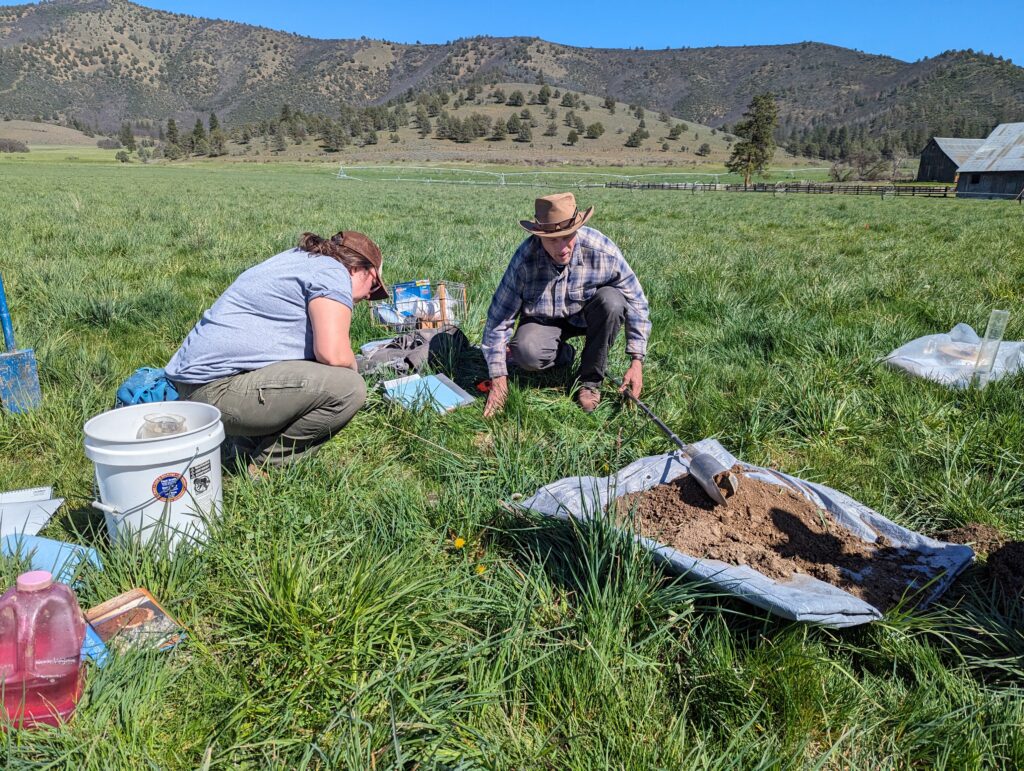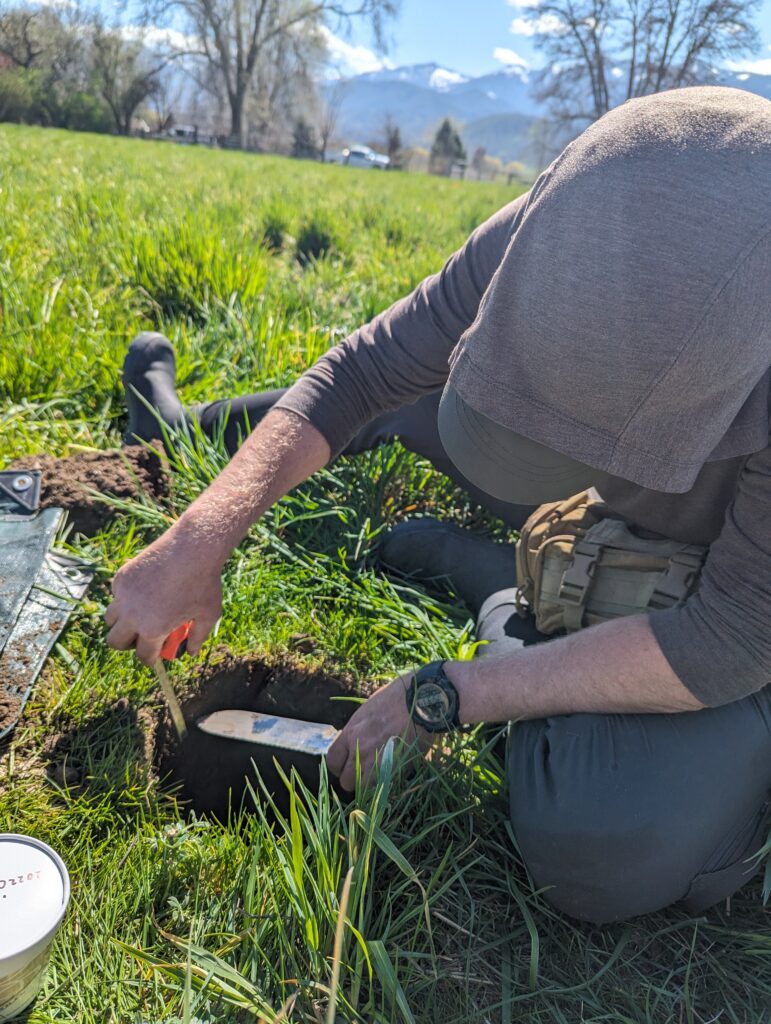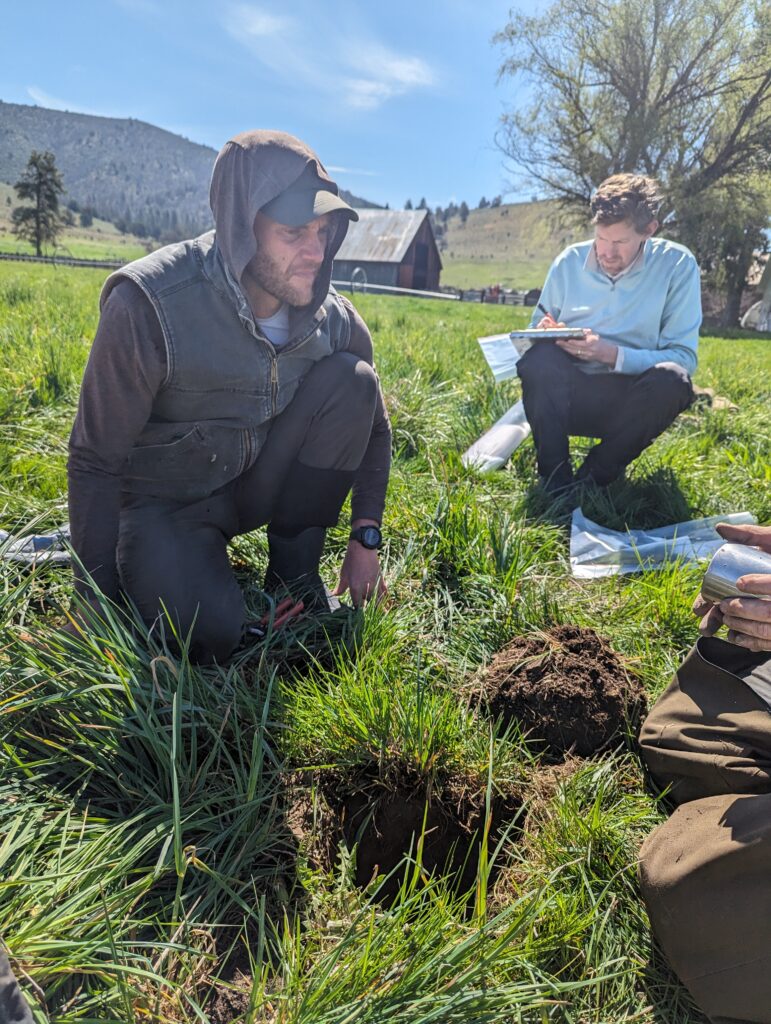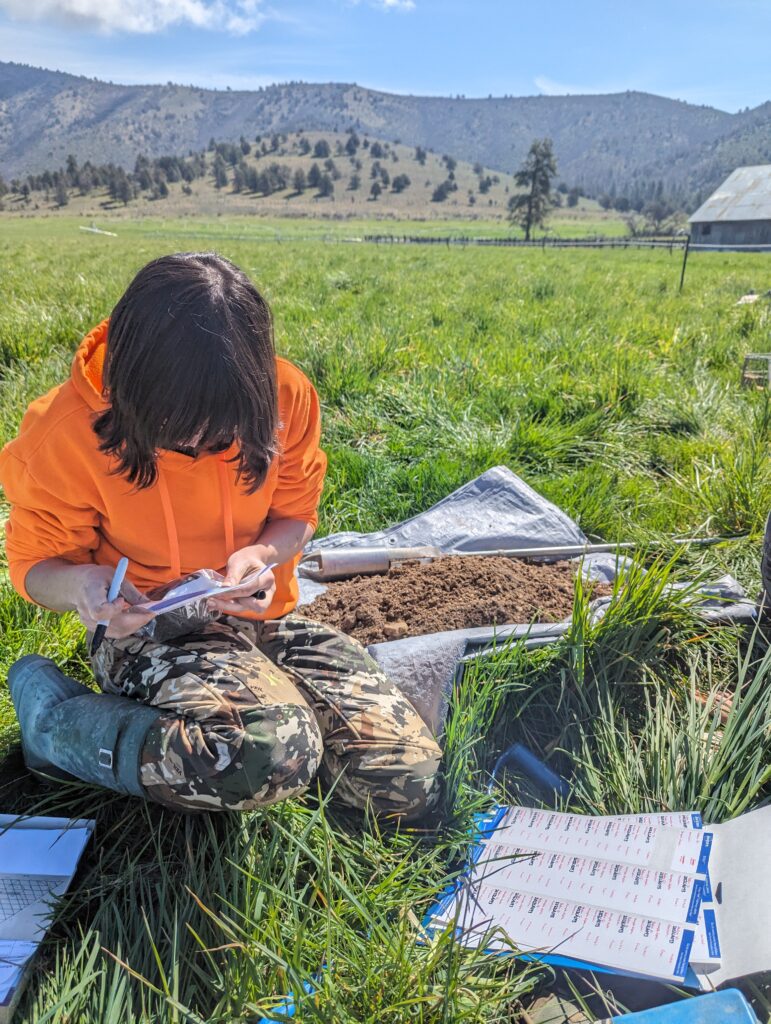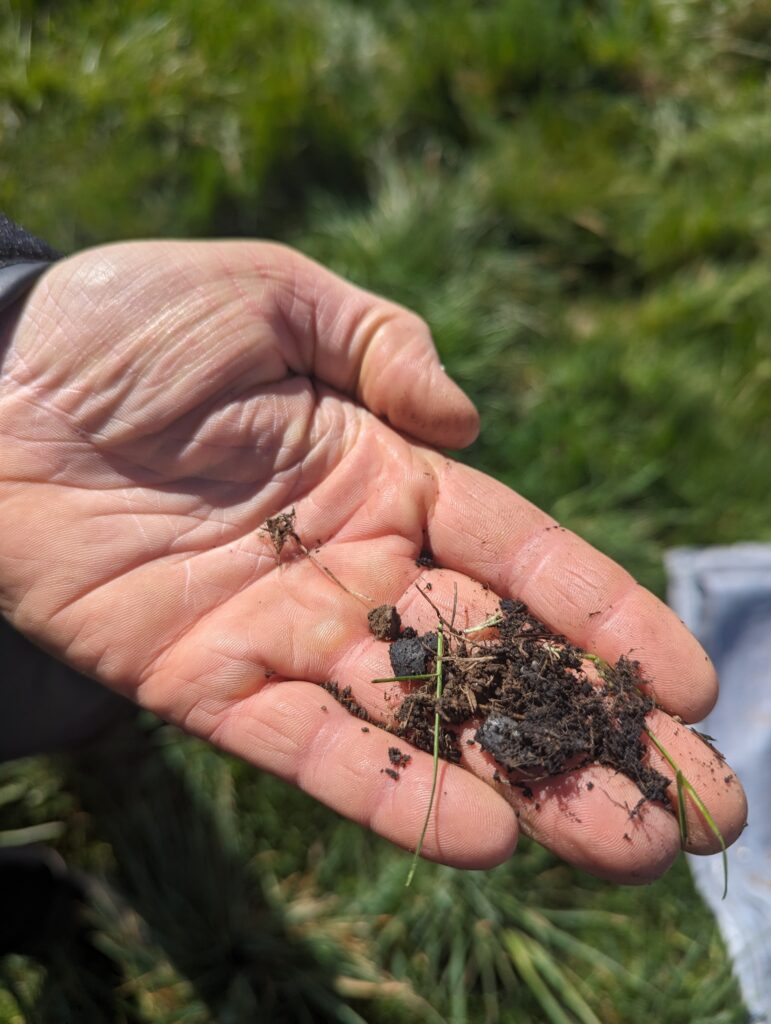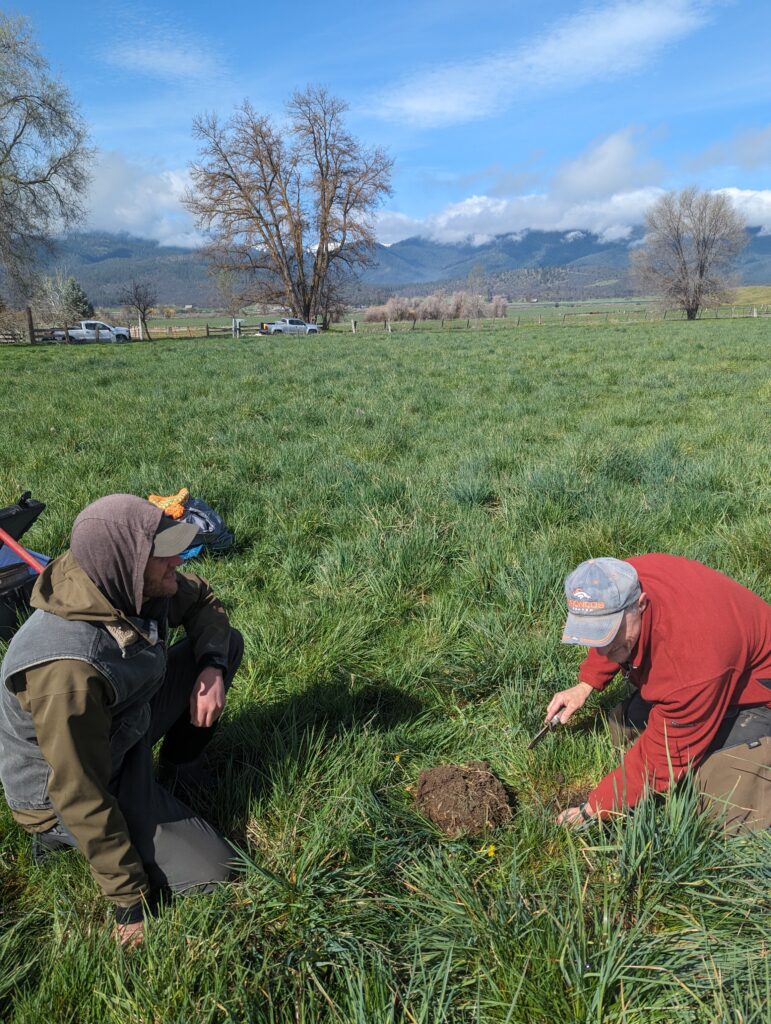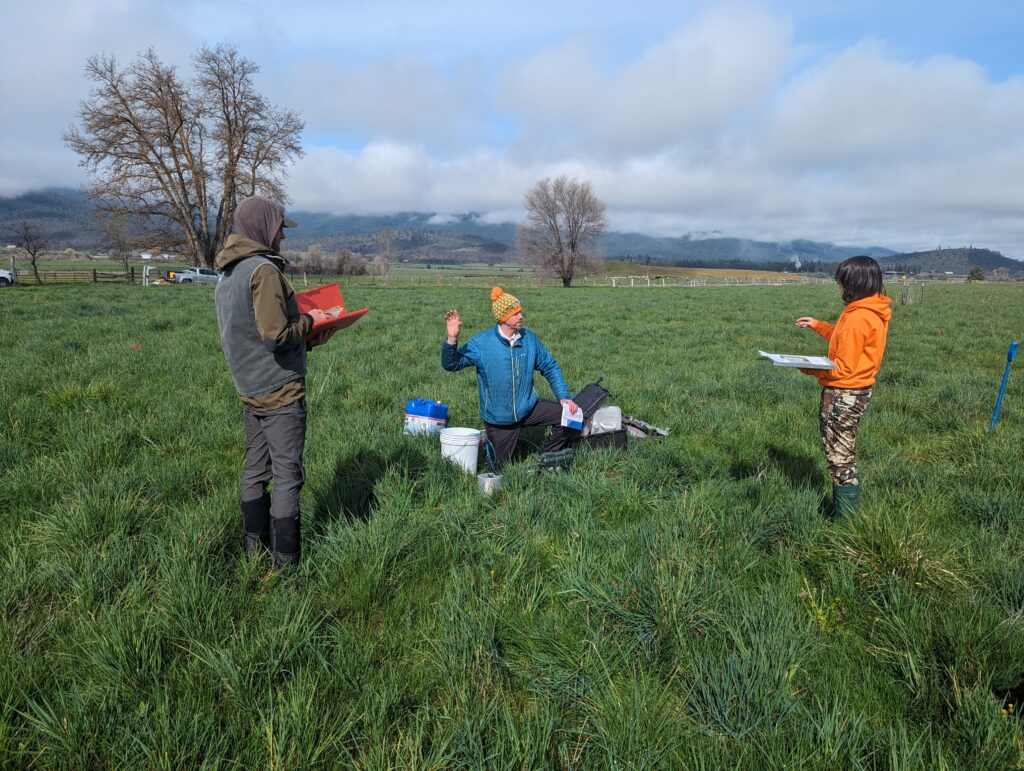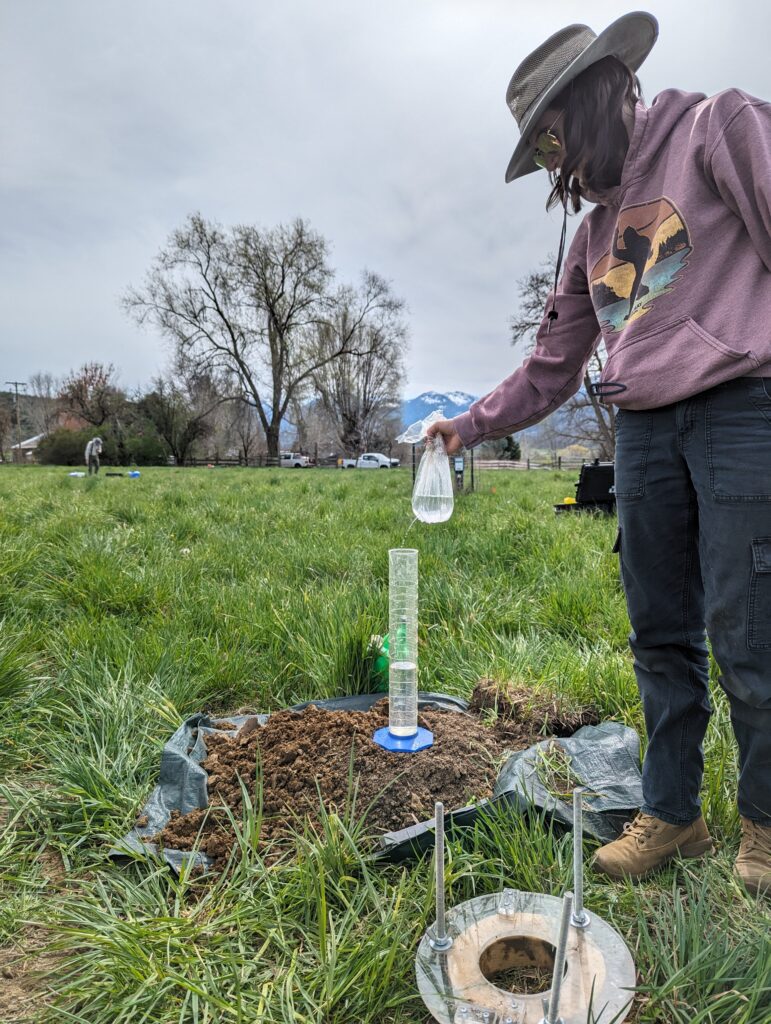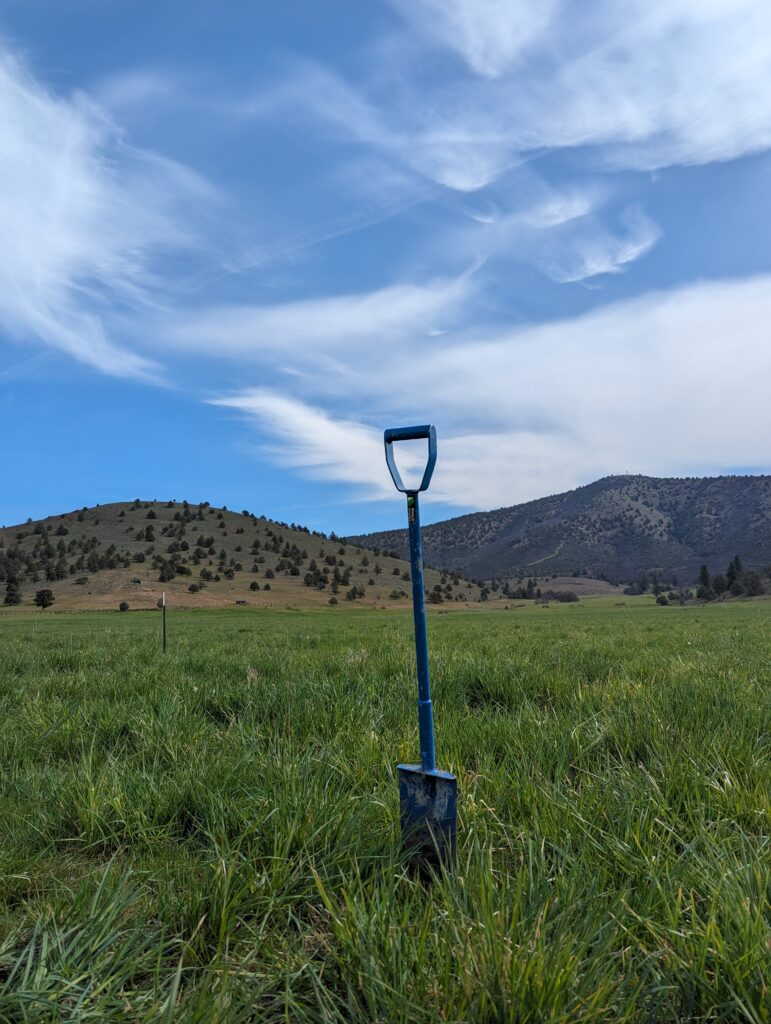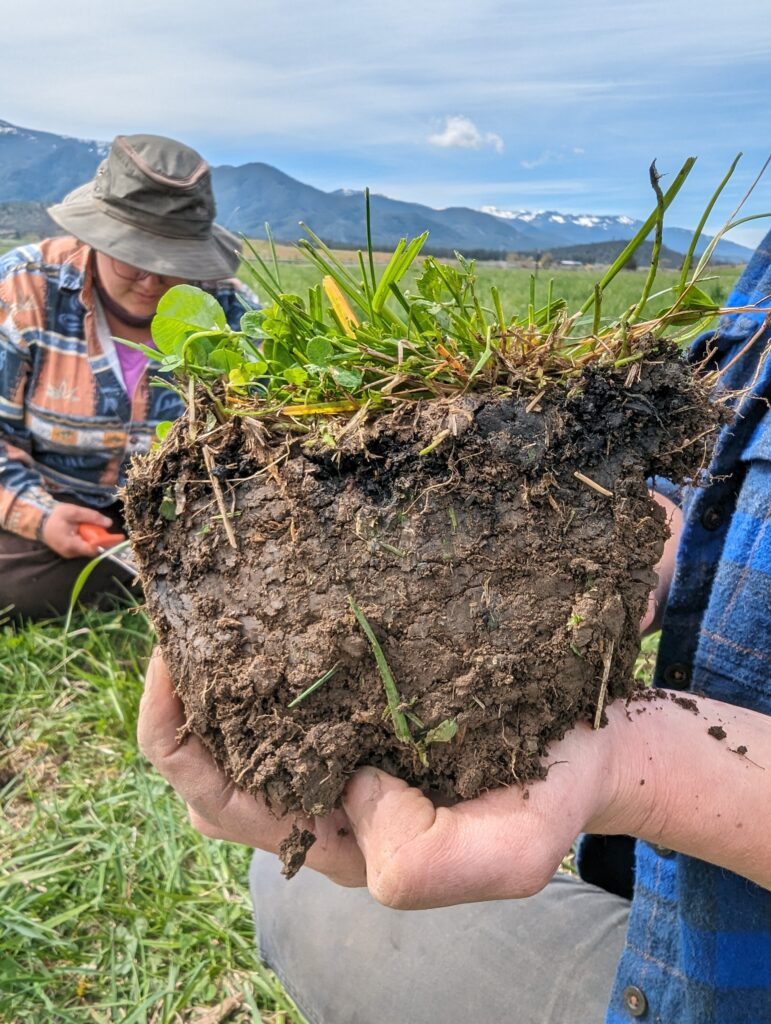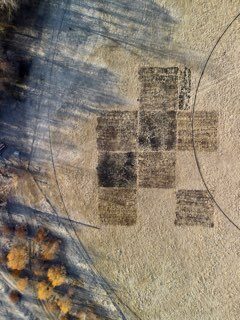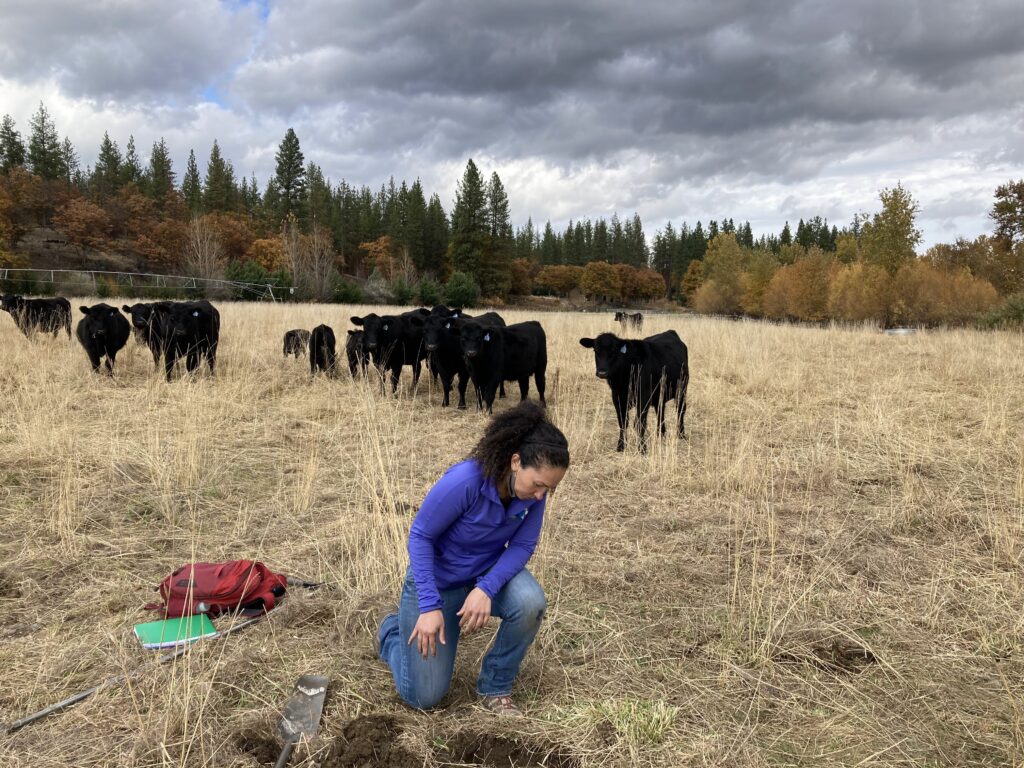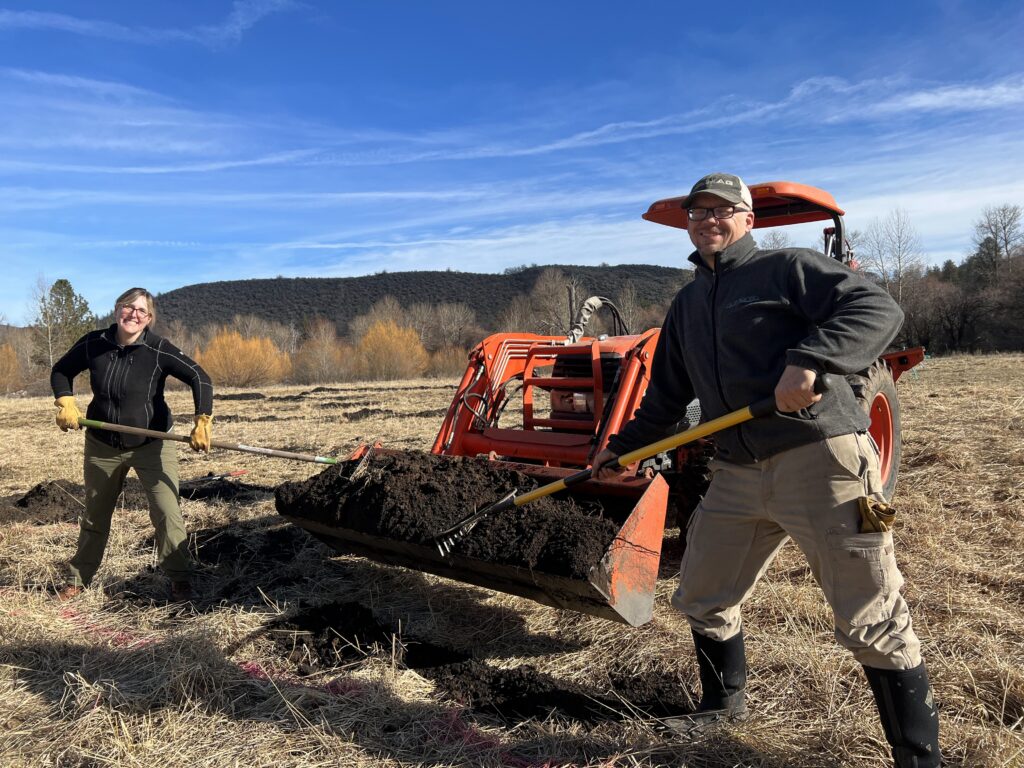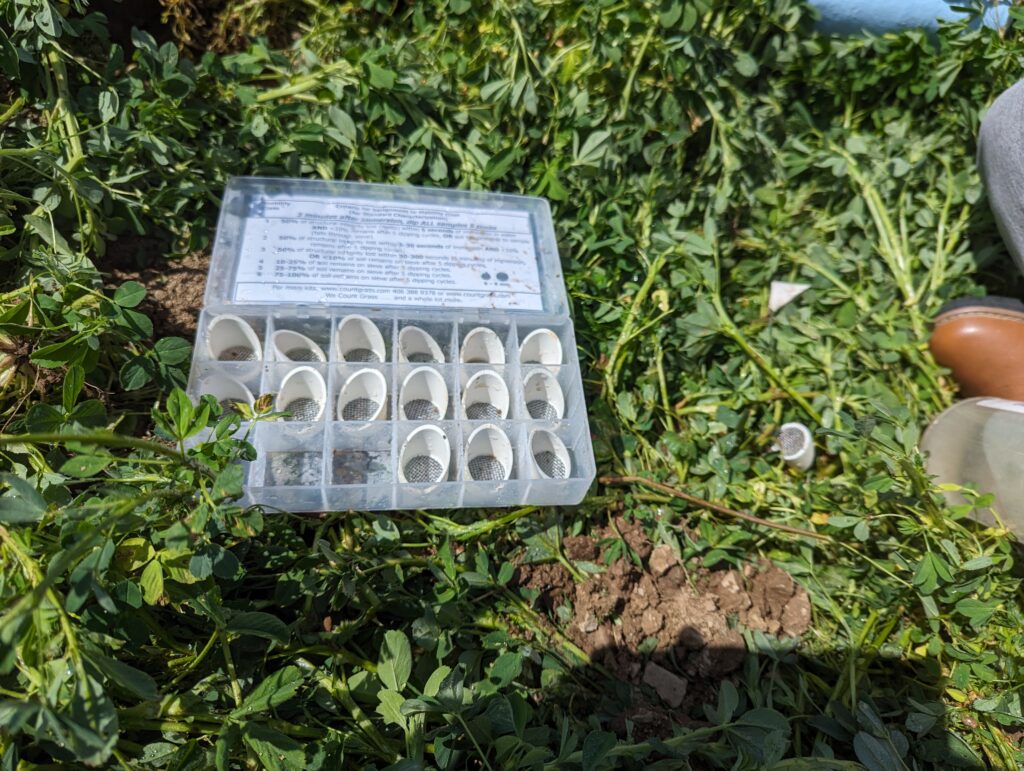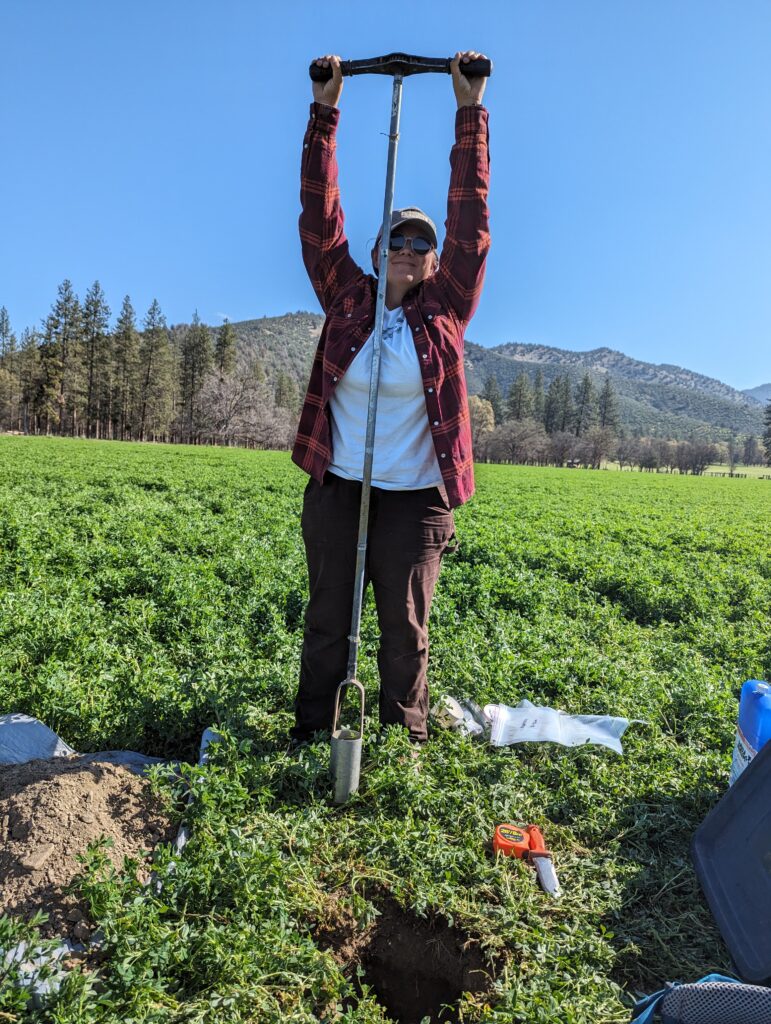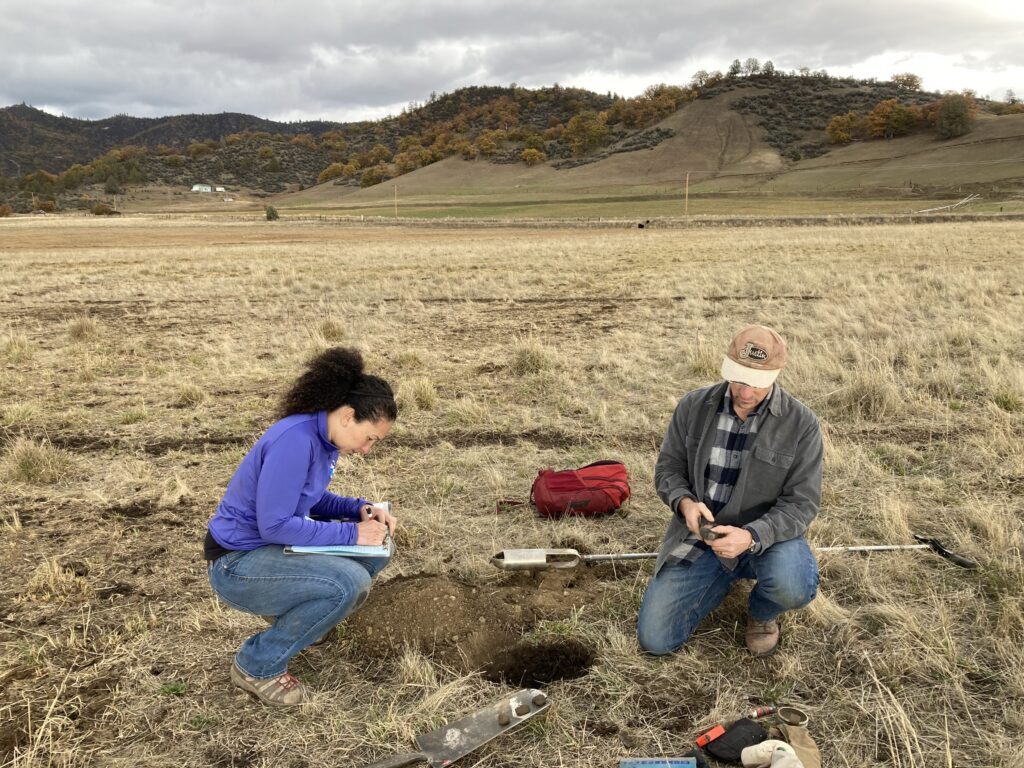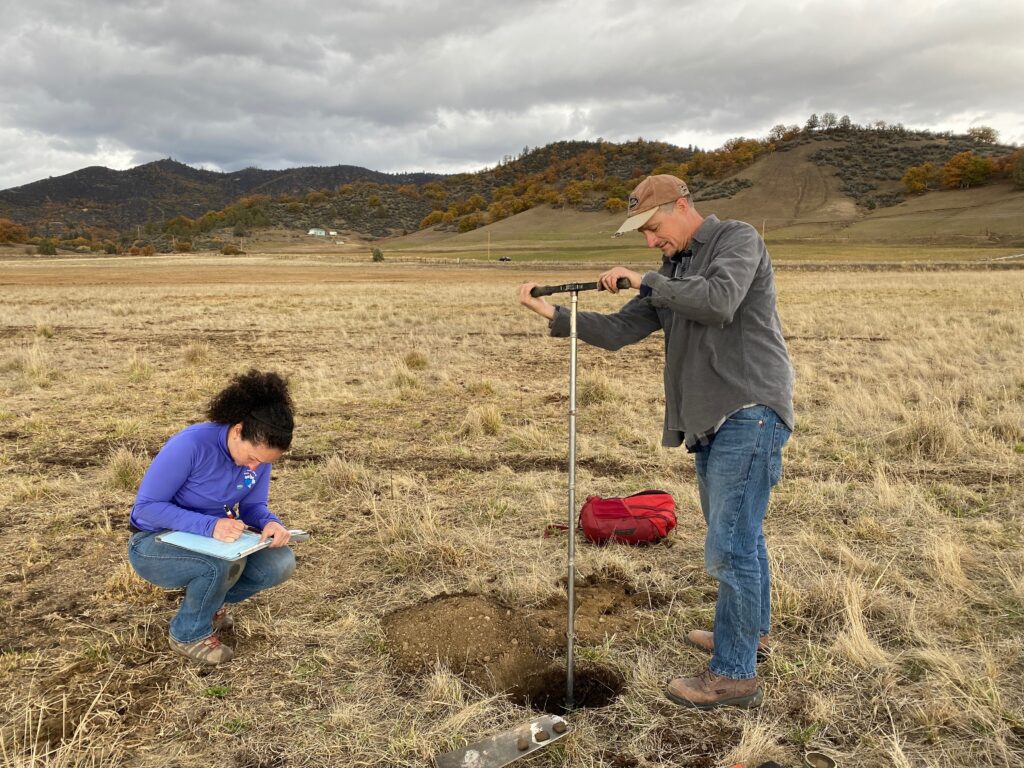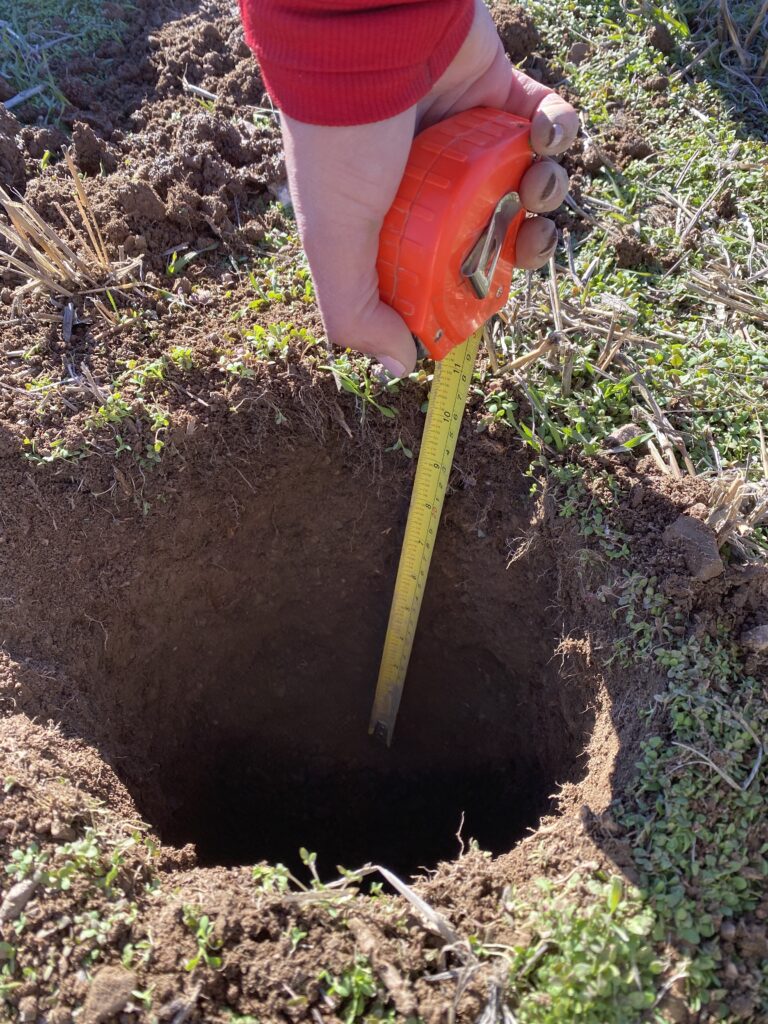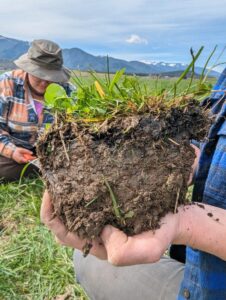Forest managers throughout the northern region of California are looking to find ways to quickly and efficiently reduce forest fuel from overstocked forests. Climate change driven increased drought frequency and high temperatures, along with reduction in rainfall and dwindling snowpack, is setting the stage for catastrophic wildfires that threaten the forest ecosystem, timber revenues, and communities. One tool to reduce large amounts of excess forest fuel is the creation of biochar. Biochar can also be useful in agricultural applications. Biochar has been shown to store carbon and increase organic matter, increase plant productivity, and increase water retention and irrigation efficiency in agricultural settings. These benefits may allow agricultural producers to be more resilient to the effects of climate change as well as sequester carbon from local overstocked forests.
Scott River Watershed Council (SRWC) is working with five agricultural producers in Siskiyou County by conducting a scientifically based study, with stakeholder participation, to determine the effects of the application of biochar, compost and composted biochar on hay, pasture, and rangeland production systems. For a quick view of this project, please click here.
The project will address the following research and outreach components to better understand how the use of biochar in our local agricultural setting may benefit growers:
- Estimate carbon storage and increases in organic matter
- Potential to improve plant productivity and plant available water
- Calculate overall carbon footprint of biochar production and application
- Develop cost/benefit analysis for application costs
- Share research results and information to the public through field day, website resources, factsheet and professional presentation at a conference.
The project is building on the new NRCS Conservation Practice Soil Carbon Amendment 808 will evaluate the effectiveness of locally produced biochar and compost as soil amendments and testing composted biochar as practice enhancement. In December 2020, SRWC managed the production of 432 yards of biochar from 373 bone dry tons of forest fuel thinning with funding from the North Coast Regional Partnership, the CA Natural Resources Agency, and California Climate Investments. This biochar was transported to five agricultural producers in the Scott Valley that were interested in testing the effectiveness of a biochar application in their production systems.
The Project will innovate by scientifically quantifying the increased soil moisture retention and carbon sequestration effects of integrating and expanding the existing NRCS Conservation Practice Soil Carbon Amendment 808 into a whole watershed process to apply excess forest biomass as a locally produced composted biochar to agriculture fields. The data will be used to inform greenhouse gas calculations for the biochar as a whole and model how this project could scale to apply for the off-set carbon market.
Siskiyou County Multi-Benefit Biochar
